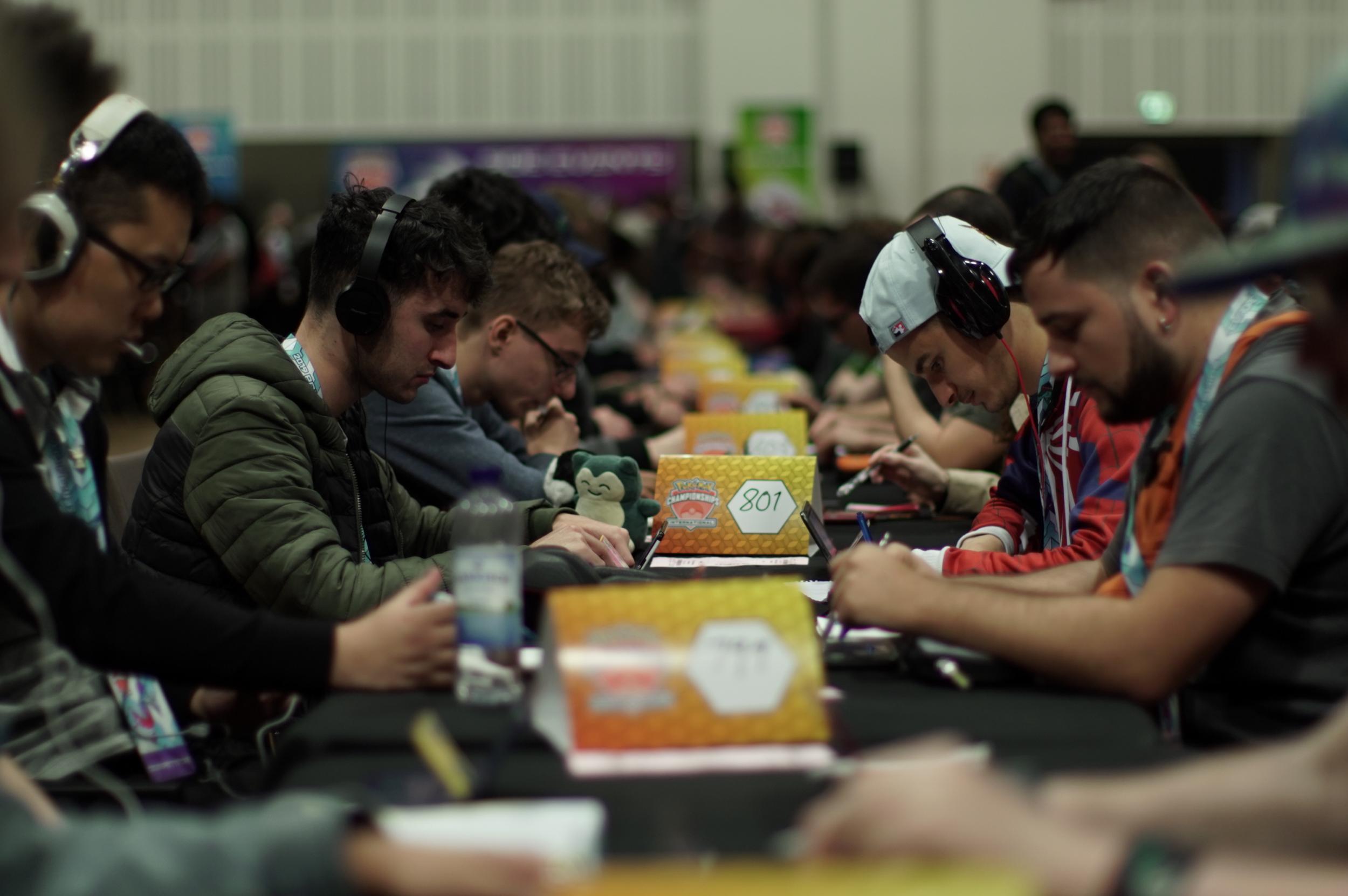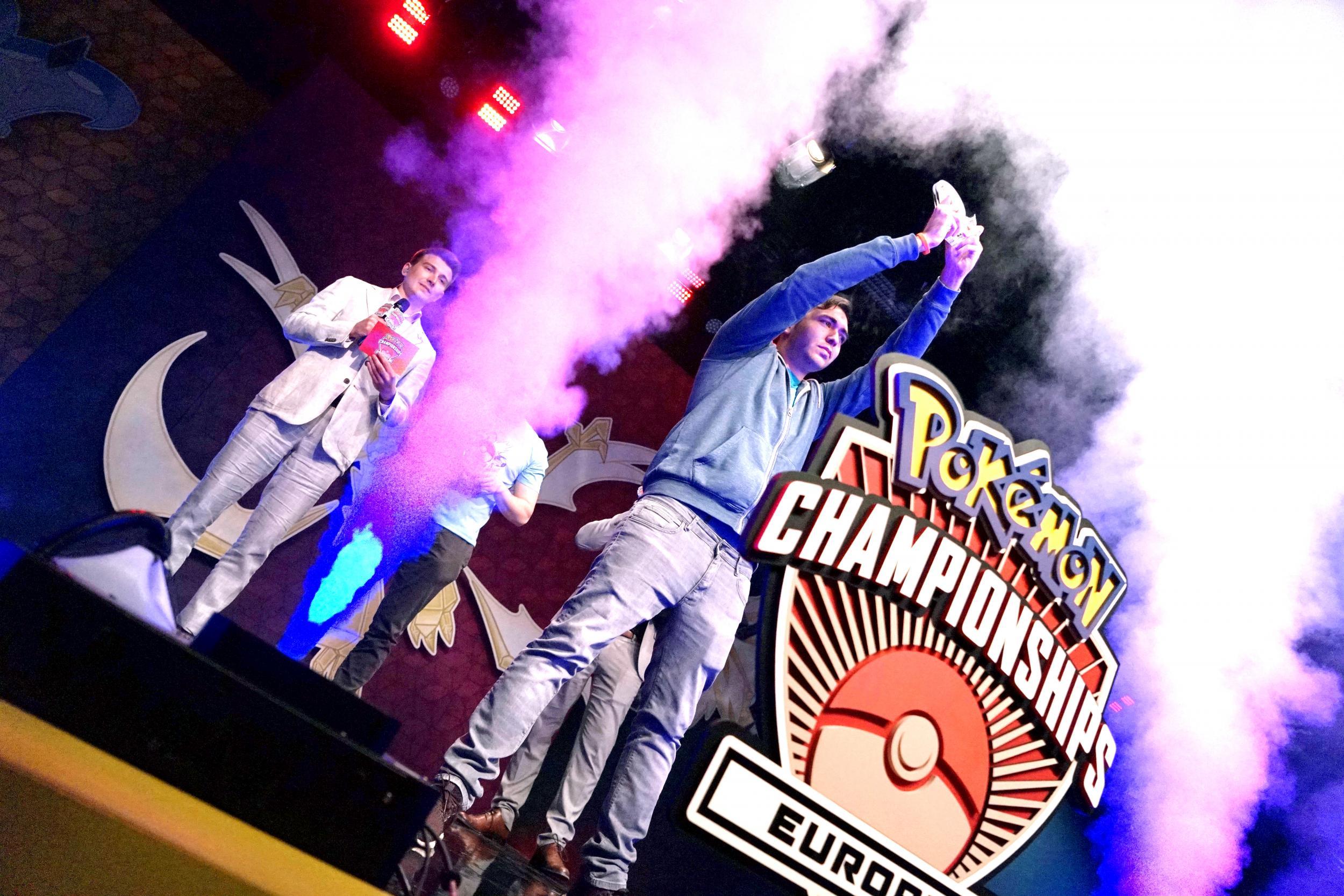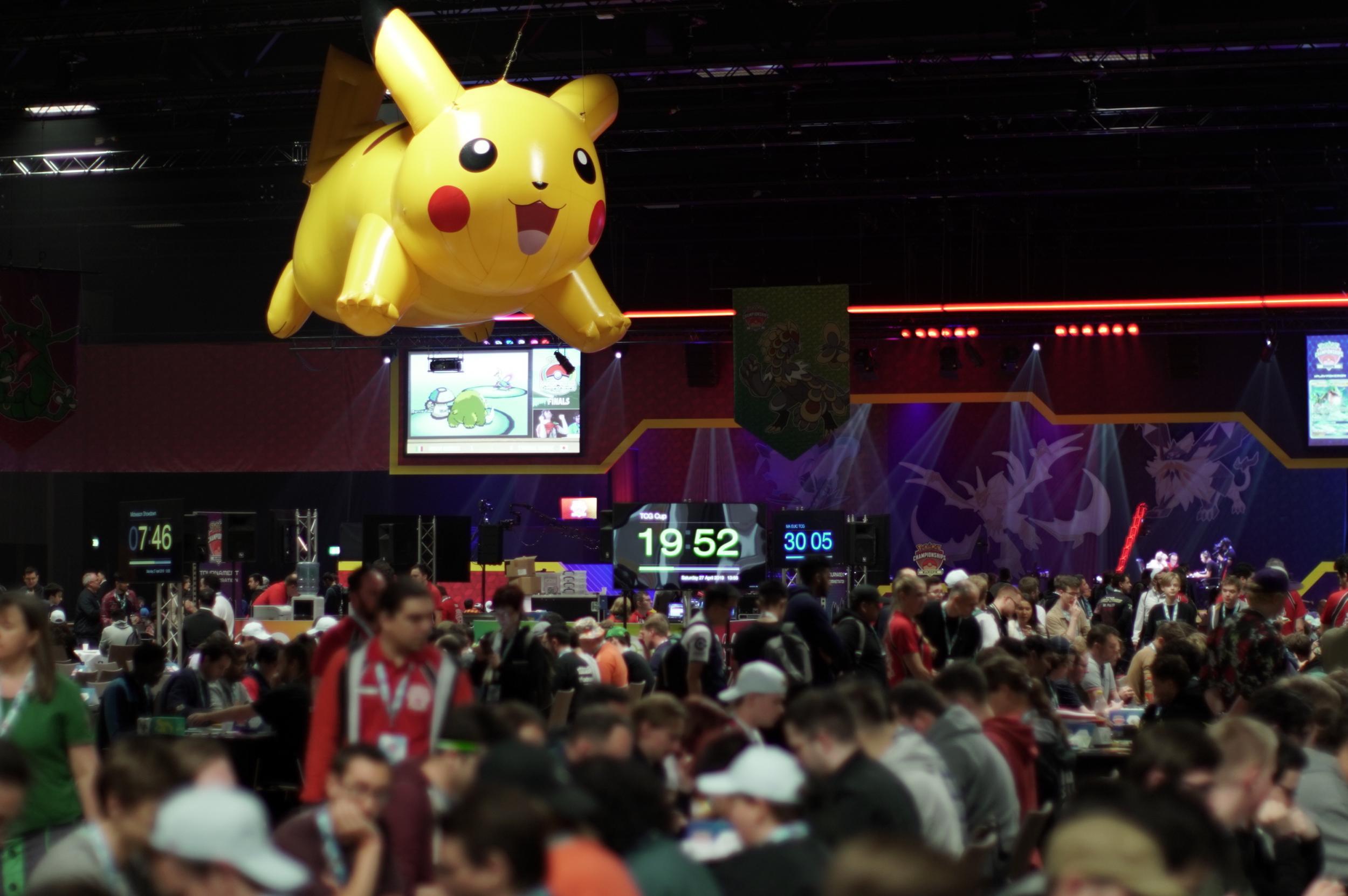Why is Pokémon still so popular? Exploring the cultural phenomenon 20 years on
The European Championships gives an insight into the overwhelmingly popular world of Pokémon
Your support helps us to tell the story
From reproductive rights to climate change to Big Tech, The Independent is on the ground when the story is developing. Whether it's investigating the financials of Elon Musk's pro-Trump PAC or producing our latest documentary, 'The A Word', which shines a light on the American women fighting for reproductive rights, we know how important it is to parse out the facts from the messaging.
At such a critical moment in US history, we need reporters on the ground. Your donation allows us to keep sending journalists to speak to both sides of the story.
The Independent is trusted by Americans across the entire political spectrum. And unlike many other quality news outlets, we choose not to lock Americans out of our reporting and analysis with paywalls. We believe quality journalism should be available to everyone, paid for by those who can afford it.
Your support makes all the difference.“Gyro Ball going into the Tapu Fini.” The audience around me is enraptured, howling and cheering at the scenes unfolding on the stage in front of them. “Interesting that he’s targeting the Tapu Fini as it’s a Pokémon which can’t really do too much other than Nature’s Madness at the moment but he’s going straight into this Pokémon. [He] takes it down with a double target. Is Xerneas still going to be sleeping? No! It does wake up! Eric [is] very, very excited by that!”
The focus of this audience’s attention is Wolfe Glick and Eric Rios, two young men hunched over the table like wizened chess players, controlling their Nintendo 3DS consoles with dexterity that is the result of years of intense practise. They are the nascent stars of a scene that most people simply don’t get, battling it out in the 2019 Pokémon Europe International Championships in Berlin, Germany.
————
Pokémon is having a moment, to borrow a phrase from a hackneyed headline format. That might sound odd to non-nostalgists, or anyone who hasn’t been tracking the newest trends, but it’s undeniable. With the release of Detective Pikachu (an intriguing and entertaining cute-em-up movie) and two new Nintendo Switch games in 2019, it’s set to be a huge year for the brand. The question a lot of people are asking though is: how? Everyone was collecting Pokémon cards in the 90s, a lot even played it, and almost all of them stopped. But many still do – competitively. Why?

In the twenty years since Pokémon: The First Movie was released, society looks very different. From being barely online to one of constant connection, the world that first welcomed Pokémon into its arms is hardly recognisable from that which is welcoming the so-called “Pocket Monsters” all over again. But that is one of the strengths of Pokémon: its ability to constantly adapt – and keep fans interested. The cards (or Trading Card Game, as it’s officially known) were very 1996, in the least pejorative way possible, but have been modernised with fresh designs, not to mention a much greater volume of cards available to buy and collect. There’s also the fact that the teams behind it all keep coming up with new ideas and integrating new technological advancements, such as embracing smartphones and releasing Pokémon Go – more an entirely new genre than just a new game.
Pokémon was launched during the height of western cultural civilisation as we know it – the late 90s – and the first Pokémon Movie was among 1999’s biggest releases (along with The Phantom Menace, Notting Hill and The Matrix, as well as countless other modern classics). What started out as an ode to bug collecting now appears to be back, arriving as society descends to its nadir. One way to track the brand’s popularity through the years is to take a look at the official magazine. It was initially launched in 2004, but cancelled soon after. They tried again in 2013, but that iteration also only survived a short while. 2017 saw the latest and most recent attempt, which is now 28 issues in and seems to be sticking around, which is a small miracle in the world of magazines. The same pattern is seen in Google Trends, which shows an enormous and unparalleled spike in searches in 2016, when Pokémon Go was launched, otherwise it’s a pretty steady level of intrigue and excitement. Which is to say, a lot of both.
————
The venue for the 2019 Pokémon Europe Championships is in no way understated. The location, in Berlin’s trendy Neukölln, belies the corporate-feeling Estrel Congress Center, a building more suited to dry trade shows than the tournament that is taking place. The championships also feel out of place here, but the sheer size of the main hall and volume of attendees – both those here to compete and those looking to simply spectate – means there are few place that could accommodate comfortably.
The first thing you notice when you walk in is the size. It’s not dissimilar to what a suburban supermarket (think Asda) might look like if you completely cleared all the shelves and products; it’s enormous. The second thing you notice is the appropriately large, floating Pikachu – the de facto mascot of the Pokémon universe. Scattered around the dimly-lit area are dozens of tables, laid out like a GCSE exam hall, all pointing towards the stage which hosts the commentators, players and casters, giving a play-by-play account of the action streaming on YouTube.

Despite appearances, it’s not at all stuffy or oppressively musty. In fact, it’s reassuringly pleasant, both in terms of atmosphere and ambience. You also wouldn’t be blamed for expecting a fairly contemptuous band of players – after all, it is a competition, and there’s thousands of dollars up for grabs for the various winners, but it’s remarkably positive.
“It’s particularly lovely as the game approaches all ages,” says LouLou The Pikachu, a video game commentator and all-round Pokémon super-fan. “[Pokémon] means everything to me. It’s meant I can meet new people, travel the world and experience new cultures – and there’s also a great camaraderie among the players.”
LouLou is one of various people on stage at any one time, an enthusiastic presence who either helps elaborate on the action if you’re a knowing observer, or further compounds your confusion if you can’t quite keep up. Generally speaking, there’s a vague sense of chaotic order and there’s no real way to tell what’s going on - unless you know what to look for.
The sense of camaraderie that LouLou mentions is backed up by a story that does the rounds during the Championships of a young boy at another competition who arrived with the hopes of entering the video game tournament. Unfortunately for him, the age of entry for players was 12, so at 11 years of age he just missed the cutoff. He was offered the chance to enter the trading card game tournament instead, but had to explain that he left his cards at home. Overhearing this, other competitors rallied round and gathered their spares to fill out his deck and allow him to compete. Apparently he even made it fairly far in the tournament. Now, while this might sound like a form of copypasta (“and that boy’s name? Albert Einstein”) it’s the sort of tale that’s spun here and after two days of observing, I can admit: I can see that it might well be true.

For many of the younger competitors, this is an early dip into the frenetic world of e-sports. Some question if it’s actually an e-sport, though – in part due to the lack of teams and huge sponsors, which means it isn’t possible to make playing Pokémon for a living a reality. LouLou the Pikachu, however, thinks of it as an e-sport because of how much effort the competitors put in. Other players I speak to around the hall seem to share that opinion, with one claiming its “popularity says it all.”
————
Pokémon is a game that’s simple to get into but fearsomely difficult to master, both on consoles and the trading cards. Through changing worlds and the introduction of hundreds of new characters one thing has stayed the same: the overall format. It’s sort of like riding a bike in that it never leaves you. If you knew about Pokémon in the 90s then chances are you’ll know a lot more about it now than you realise – you don’t forget that water Pokémon are strong against fire types and so on. In fact, like many others who grew up with the game, you may be suffering from Pokémon brain, your head having re-wired itself permanently to store all those little creatures.
There’s also the fact that it’s such a welcoming and pleasant world to get lost in. The 2019 European Championships took place in Berlin, with competitors from all over the world flying in. The lingua franca of the event was, as with most things rooted in the online space, English. But more specifically, it was Pokémon. Creators all those years ago knew that both American and Japanese children would be able to pronounce “Pikachu”, and that still holds true in a shared language that fans around the world speak.
The appeal of Pokémon is clear to see around the world, and it feels like everyone has a story about collecting the cards when they were younger, or playing Pokémon Go when it launched in June 2016. One of my favourites is about a kid who was desperate to get a shiny Charizard (weren’t we all?) and his late father surprised him with one, one day. Give it a read.
But maybe it’s not just back (again). Maybe it’s now bigger than ever? In the US, Pokémon: The First Movie took just over $85m throughout its entire domestic run in late 1999. Now compare that to Detective Pikachu, which had a box office of $55m on its opening weekend and has since surpassed The First Movie by the same metrics. Maybe – just maybe – Pokémon fever is hotter than ever? Or maybe those that grew up with it now have the resources to take their own children to the cinema, ready to be exposed to this captivating world.
I came here to answer the question, why is Pokémon still popular? But I come away thinking, why isn’t it more popular? Why hasn’t it reached 1999 levels of fever? It’s an unrelentingly, at times suffocatingly likeable phenomenon, evocative of another time, though it’s also broadly reflective of the world as we know it today. The truth is you’re never too old to play Pokémon and everyone here knows it. Whatever happens next, I bet it will be popular in another ten, or twenty years, drawing thousands of people from across the world to a cavernous hall ready to compete in their favourite game.

Join our commenting forum
Join thought-provoking conversations, follow other Independent readers and see their replies
Comments